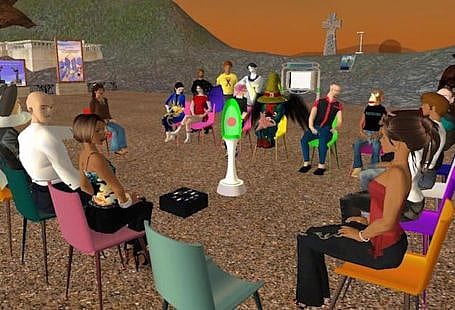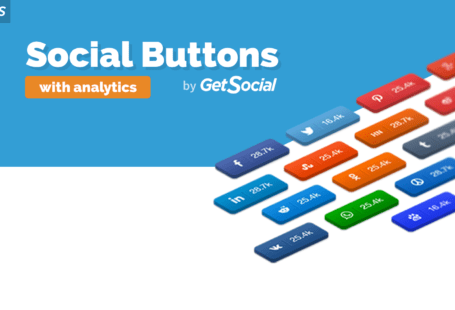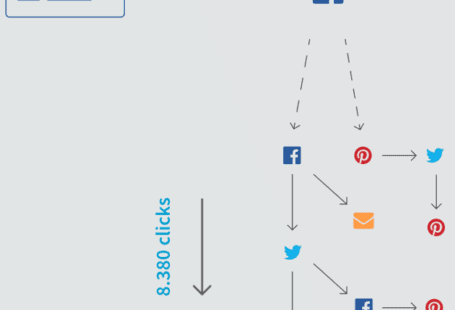It’s obvious that media is changing. Newspapers are feeling the financial strain and being forced to diversify into making their money online — through cpm banner ads and online subscriptions. Some are better at this than others and the ones who succeed are the ones who understand that online journalism is an entirely different beast to print journalism.
This is much simpler to understand that you might think. If a person buys a magazine or a newspaper they are buying a curated, organised thing — what they are going to read has been decided for them. When a person goes online they’re faced with a colossal global mess of opinions, attention-seeking headlines, contrasting views and endless choice. One way that people can organise this mess is by taking note of what their friends are reading. They do this by seeing what their friends are sharing.
Critics have argued that the online shift has resulted in the death of journalism — where people are more interested in ‘Cats Who Failed So Hard They Won’, than in the situation in Syria. But ‘Cats Who Failed So Hard They Won’ brings people to a site. And the more people go to a site the more money that site has. And the more money, the more journalistic fire power.
For example, in the UK, the most successful newspaper website is the Mail Online, which receives 55.8m unique visitors a month. Close behind are The Guardian and the New York Times with 42.6m and 41.6m respectively. The most popular newspaper website in the world is Chinese newspaper Xinhua News at 90.2m.
These figures pale into insignificance, however, when compared to internet Goliath, Buzzfeed who reign supreme with a whopping 178m monthly uniques. This translates to a company net worth of $850m. Five years ago, all Buzzfeed were known for was Cats, ‘epic fails’ and cupcakes. Now they regularly run in depth features like ‘U.S. Senate Probing Privatized Foster Care’ and ‘Inside The Chilling Online World Of Women In ISIS’.
Barack Obama recently appeared in a Buzzfeed video taking a selfie. How did they get him to do it? Easy, like this: ‘Mr President, 178 million people all over the world log onto our website every month. Got anything you want to plug?’
And the article in question? Shared almost 100,000 times (http://bit.ly/obamabfvideo)
It’s easy to be cynical about websites like Buzzfeed, who benefit primarily by wasting everyone’s time and trapping us in endless loops of distraction. In fact, Buzzfeed (and sites like it, of which there are tens of thousands) has been satirised perfectly by the guys at The Onion with their site Clickhole, who’s sarcastic slogan is ‘all content deserves to go viral’. This might not be the case, but an article like ‘Ramy Essam Needs To Stay Famous So He Doesn’t Get Killed’ does deserve to go viral. And with a giant like Buzzfeed, it can. And most likely will.
Buzzfeed themselves contribute their growth to a huge change in the way people consume news. Buzzfeed board member Andreessen Horowitz explained on his blog: “We’re presently in the midst of a major technological shift in which, increasingly, news and entertainment are being distributed on social networks and consumed on mobile devices. We believe BuzzFeed will emerge from this period as a preeminent media company.”
The buck doesn’t stop with Buzzfeed — they’re just the most famous example. Cracked.com, who call themselves “America’s only humour site”, used to be best known for articles like ‘6 Well Intentioned Ways You’re Ruining Your Dog’. Today, you’ll find hard hitting features like ‘5 Things I Learned At A ‘Pray Away The Gay’ Camp’ and ‘6 Horrifying Things You Learn As An Inmate On Death Row’.
These companies know how to get people to share their articles and utilise the power of social media to provide order and context to confused news consumers in an increasingly online world. People still want to educate themselves about the world, but online the world is huge, and it’s hard to know where to start. In turn, sharing brings people to websites, which brings in more money through ad sales (and in the case of Cracked and Buzzfeed, merchandise sales). This money is then filtered back into the content by people who set up their websites in the first place with the best intentions — not to make a quick buck, as many critics wrongly accuse, but to create solid news platforms that are adaptable to changing technologies.
Interested in knowing more about Dark Social & Analytics?
[su_button url="https://getsocial.io" target="_blank" style="flat" background="#21D2B5" color="#ffffff" size="7" wide="no" center="yes" radius="auto" icon="" icon_color="#FFFFFF" text_shadow="none" desc="" onclick="" rel="" title="" id="" class=""]SIGN UP FOR FREE[/su_button]





